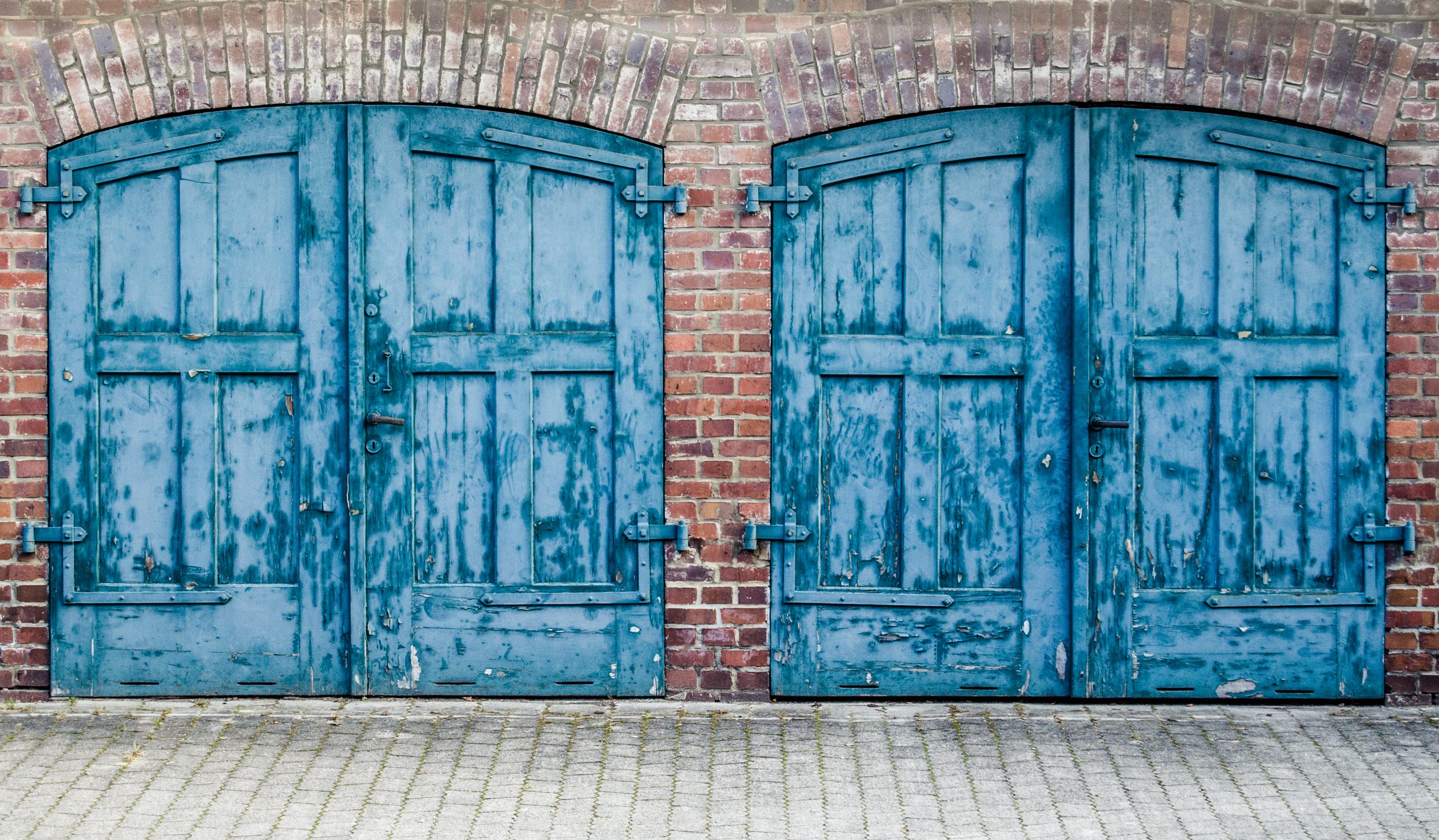When the automobile burst on the scene, it was exclusively for the most wealthy citizens. But as materials became more affordable to acquire and cars were easier to build, cars quickly replaced the horse as a primary mode of transportation. And like horses, people wanted to keep their vehicles safe.
In this post, you’ll discover a brief garage door history and how they evolved over the last century.
It’s Starts With a Horse Stable, But for Your Car
In the early 1900s, cars didn’t have windshields as a standard feature. As more people became car owners, the need to protect the interior from dirt, snow, and rain was evident.
The solution? Park your car in the stable with the horses.
This had some obvious drawbacks. A car that smelled like horse manure was not pleasant, spurring the invention of the ‘outbuilding’ in 1910. An outbuilding was essentially a covered, single-story parking lot. Car owners would pay a monthly fee to store their vehicles in heated, supervised buildings.
As cars became more popular, it became necessary to store cars closer to home. So architects began building barns, but for cars.
Overhead Garage Doors Take Over
Barns became what people know of today as detached garages. The doors were literally barn doors that opened in the middle, a style that is still reflected in the carriage-style garage doors we see today. Though car barns were clever, the barn door was a nuisance. It would require more space to open and close and often get stuck if it rained or snowed the night before.
This led inventors to the sliding door, the vertical folding door, and soon after, what we know of as the overhead garage door.
Invented in 1921, the overhead door gave car owners the option of storing the door parallel to the ceiling of their garage rather than needing extra space for it. This was the start of the Overhead Door Company, one of the largest manufacturers still serving the garage door industry today.

The Garage Becomes a Stylish Part of the Home
As cities expanded and lot space for new construction decreased, garages moved closer to the home. Seeing this demand, architects started incorporating garages into home designs. Garages were customized to fit any home style, whether it was Colonial, French, or Old English. Garage doors were complementary features of the front of the home and made to match the style of the home. Today, you can customize your garage door to reflect old-school or modern tastes.
Wooden Garage Doors Get An Upgrade
Though wooden garage doors of the time were beautiful, they posed a severe problem:
Wood was…
- high maintenance
- susceptible to rot
- required frequent repainting and replacement.
The rain, snow, and summer sun wreaked havoc on the wood and demanded that garage doors get an upgrade.
That’s where the galvanized steel doors we love today come in. Following steel, material upgrades like fiberglass and composite wood extended the lifetime of the garage door from years to decades. Homeowners could achieve the look they loved but with far less maintenance.
Styrofoam was used between layers of steel as insulation to combat extreme temperatures in garages. This invention was key to keeping garages and homes warm and comfortable during extreme weather for areas like Denver, Colorado. Insulated doors improve your garage environment, but they also help you save on energy costs. At American Garage Door, we think these are the top 6 best insulated garage doors for your home.
Though garage doors have traveled a long way from the early 1900s, they still carry markers of the past. The old designs are alive and well, even if the materials are more modern. If you’re having trouble finding the right style for your home, give us a call. We specialize in garage door customization that fits your aesthetic and lifestyle. It’s great for curb appeal too. Contact American Garage Door for an estimate today.
